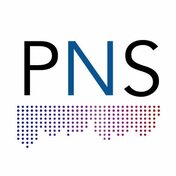Over 220 HIV Providers Urge Trump Administration to Withdraw Six Protected Classes Changes4/24/2019  Over 220 HIV providers across the country signed onto a letter from the American Academy of HIV Medicine (AAHIVM) urging the Trump administration to abandon its proposed rule that would weaken Medicare Part D's six protected classes policy. AAHIVM points out that the proposed changes could lead to increased utilization management, resulting in decreased access to lifesaving treatments for Medicare’s most vulnerable beneficiaries. “In HIV, delaying and in some cases blocking patients’ access to tailored treatment is deleterious to not only the patients’ individual health, but also to the broader public health in terms of transmissibility of the virus,” the letter states. “For these reasons, we strongly oppose the Administration’s proposal to weaken the protected classes policy and urge this proposal to be withdrawn.” The letter in its entirety can be read here.
2 Comments
 Recently, Centers for Medicare and Medicaid Services (CMS) Administrator Seema Verma sent a letter to several Members of Congress in response to their concerns about proposed changes to Medicare’s six protected classes. This fact sheet includes key substantive excerpts, each of which are followed by important facts and policy details that policymakers should be aware of.  This post originally appeared in Inside Sources on April 8, 2019. When Congress passed Medicare Part D in 2003, it took steps to protect patients in the midst of a health crisis. When time is of the essence and the stakes are life-and-death, that is not when Washington bureaucrats or health insurers should be trying to eke out cost savings. But now unelected officials at the Centers for Medicare and Medicaid Services (CMS) are moving to strip those safeguards from law.  A key group of 19 Democrats on the influential Energy & Commerce and Ways & Means Committees — which share jurisdiction over health policy — have sent a letter to HHS Secretary Alex Azar urging the Department to withdraw a proposal to weaken Medicare's protected classes policy. The letter, led by Rep. Doris Matsui (D-CA), explains that "the proposed changes to the six protected classes will result in negative outcomes for specific beneficiary populations that utilize drugs under these six classes." The Members go on to emphasize that "with a 91 percent overall generic utilization rate and only one percent of the more than 187 million prescriptions filled coming from specialty tier medications, we strongly believe this policy is working as currently implemented and should not be changed."  Leading stakeholders within the HIV/AIDS community recently penned op-eds outlining the detrimental effects that the Trump administration's proposed drug pricing rule would have on patients. The authors astutely note that a "one-size-fits-all" approach is the wrong solution given the complexity of the disease as well as the individual needs of HIV patients. Stakeholders also emphasized that reliance on step therapy and prior authorization would create additional barriers to access for lifesaving treatments.  This post originally appeared in the Memorial Examiner on March 28 2019. Recently, the Centers for Medicare and Medicaid Services (CMS) proposed a troubling regulation that would weaken Medicare Part D, the federal program that helps 45 million American seniors and people with disabilities afford prescription drugs. Part D is unique among government programs. The federal government allows people to purchase coverage from private insurers. The government subsidizes these plans but otherwise lets Medicare beneficiaries choose the coverage that’s best for them.  This post originally appeared in Public News Service on March 29, 2019. From coast to coast, people who rely on Medicare Part D could be left without their medications if a proposal by the Centers for Medicare and Medicaid Services is adopted. Medicare Part D is a federal program that subsidizes prescription drug costs for 45 million seniors and people with disabilities. The feds say they want to amend what's called the "six protected classes rule," and allow insurers to exclude many drugs from Part D plans. Fatima Hyacinthe, trainer and engagement director with the Black AIDS Institute, says people who rely on those medications already report discriminatory practices by insurance companies, despite the rules. |
AuthorWrite something about yourself. No need to be fancy, just an overview. Archives
September 2023
Categories |
Learn more |
What's New? |
|
